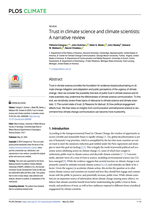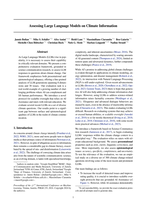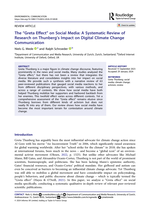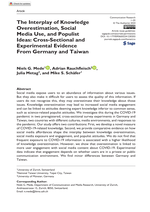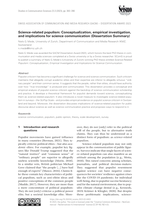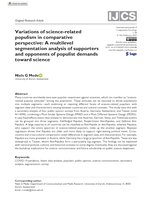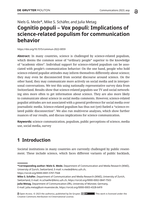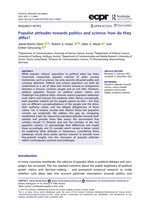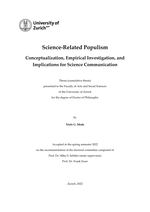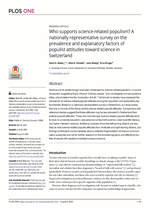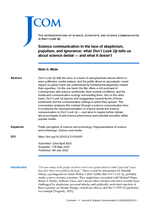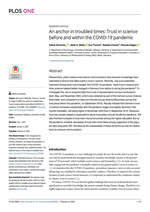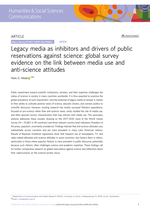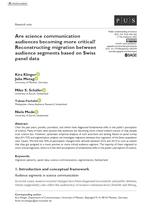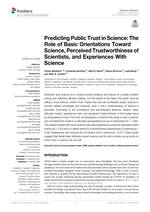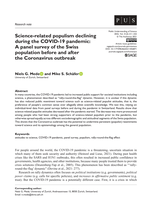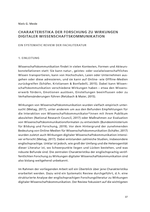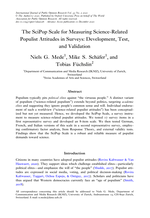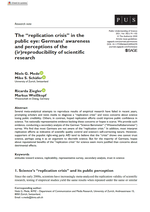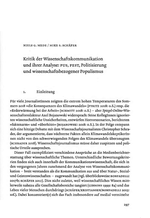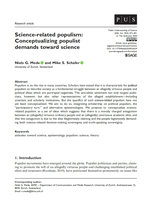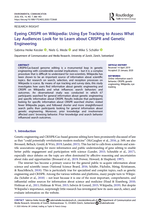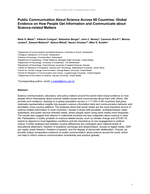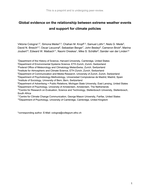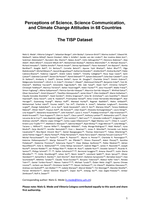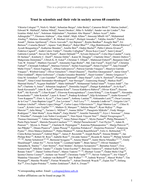Biography
I am a Senior Research and Teaching Associate at the Department of Communication and Media Research (IKMZ) of the University of Zurich, where I also completed a PhD in communication studies. My work focuses on science communication, public opinion, populism, digital media, climate change communication, and survey methodology. Together with main project lead Viktoria Cologna (Harvard University), I am currently conducting a global Many Labs study on trust in science and science-related populism – find more information on our project website.
In the last years, I was a visiting researcher at the Department of Life Sciences Communication of the University of Wisconsin—Madison (2022), the Oxford Internet Institute at the University of Oxford (2023), and the Digital Media Research Centre at the Queensland University of Technology (2024). In 2025, I will be a DDC × TrygFonden Fellow at the Digital Democracy Centre (University of Southern Denmark). You can also find me on Mastodon and Bluesky.
If you have questions about my research, you can ask them to this Poe Bot. He has been trained with all my publications and will reply based on these.
- Science communication
- Digital media
- Public perceptions of science
- Threats and attacks against science
- Climate change communication
- Comparative analysis
- Survey methodology
- Open Science
PhD, Communication and Media Research, 2022
University of Zurich, Switzerland
MA, Communication Science, 2018
University of Münster, Germany
BA, Media Management, 2016
Hanover University of Music, Drama and Media, Germany
Publications
Recent Preprints (selection)
Invited Talks and Keynotes (selection)
Double keynote with Sven Egenter at the Wisskomm Connected Conference 2024, 11-12 September 2024.
Talk in the Digital Media Research Centre (DMRC) at the Queensland University of Technology (QUT), 11 July 2024.
Talk in the London Public Understanding of Science Seminar Series at the London School of Economics and Political Science (LSE), 31 January 2024.
Keynote at the ScienceComm '23 in Bern, Switzerland, 2 November 2023.
Talk at the Cambridge Social Decision-Making Lab (CSDMLab) of the Department of Psychology at the University of Cambridge, 18 October 2023.
School of Psychology of the University of Kent, 19 July 2023.
Oxford Internet Institute (OII) of the University of Oxford, 22 June 2023.
Symposium “Populism, Polarization, Propaganda in Times of Crisis” at the University of Zurich, 18 October 2022.
Rämibühl Realgymnasium Zürich, 3 October 2022.
Health and Risk Communication Center at the Michigan State University, 9 May 2022 — with Viktoria Cologna.
Department of Political Science at the University of Toronto, 25 April 2022 — with Viktoria Cologna.
Input talk at panel discussion with PD Dr. Christian Althaus at the Paulus Academy Zurich, 28 April 2021.
Social Media Webinar 2020 of the Swiss Academy of Sciences (SCNAT), 29 October 2020.
ReproducibiliTea Journal Club of the Center for Reproducible Science (CRS) at the University of Zurich, 1 October 2020.
